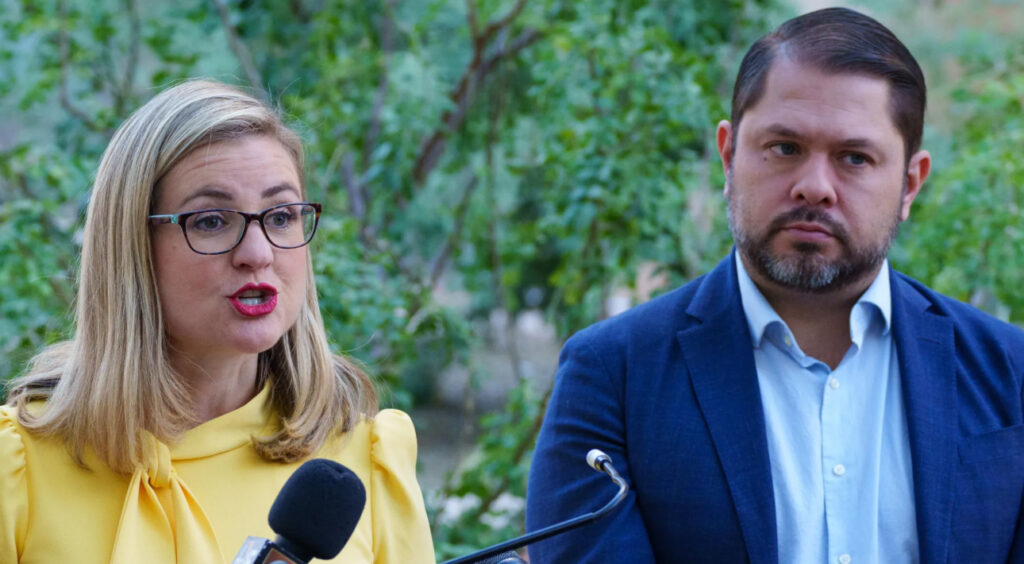In a recent legal development, Phoenix Mayor Kate Gallego and Arizona Congressman Ruben Gallego faced a significant setback when the Arizona Supreme Court denied their last-ditch appeal to keep their divorce records sealed. Following an October 15 ruling by an Arizona Appeals court that unsealed these records, the couple’s efforts to maintain their privacy before the looming November 5 election were met with rejection. The Austin-based firm that initially represented them proposed heavily redacted documents that critics likened to classified CIA files, but the court eventually mandated that the essential portions of their divorce proceedings be made public.
The divorce records, originally sealed by the Yavapai County Superior Court, became the subject of a public records lawsuit filed by the Washington Free Beacon. This lawsuit argued that such records should be accessible to the public. The Yavapai County Court agreed and ordered that certain parts of the divorce documents be unsealed but only redacted certain sensitive information. The Arizona Court of Appeals later upheld this decision, allowing for public disclosure while issuing a temporary stay on the ruling until a last-minute appeal was made by the Gallegos. This appeal was swiftly denied by the Arizona Supreme Court, which concluded that they failed to demonstrate sufficient cause to keep the records private.
The implications of the court’s ruling are especially significant given that Ruben Gallego is currently campaigning for a Senate seat. His divorce from his ex-wife, Kate, has resurfaced as a point of contention, especially with questions swirling around the circumstances of their separation. Reports suggest that Gallego abandoned his pregnant wife in 2016, later marrying a DC lobbyist in a timeline that has raised suspicions about infidelity. His opponent, the Trump-endorsed Kari Lake, has seized upon these revelations, labeling Gallego a “con man” and questioning his integrity both personally and professionally as the election draws near.
The controversy surrounding Ruben Gallego’s divorce is compounded by the financial aspects of the ordeal. It has been reported that Gallego spent nearly $1 million in campaign funds to keep the divorce records sealed, raising public eyebrows about what he might be trying to obscure. Critics are left wondering what information is deemed so detrimental that he would go to such lengths financially to prevent its release. Beyond just the legal battle, these financial expenditures reflect a broader narrative about Gallego’s campaign tactics and transparency.
To complicate matters further, Gallego has asserted that his motivations in seeking to keep the divorce records private are rooted in a desire to protect his son from potential public scrutiny and attacks. This narrative raises questions about parental responsibility versus transparent political candidacy, particularly in a fierce electoral environment. The public disclosure of his divorce records, expected to occur imminently following the Supreme Court’s ruling, is poised to inject new drama into his campaign against Lake and may spur further examination of his past decisions and conduct.
As the narrative develops, the situation remains fluid with potential implications on the upcoming election. The unsealing of the divorce records could have swift repercussions for Gallego as voters gain insight into his personal life and how it intersects with his political aspirations. The Gateway Pundit and other outlets are expected to closely monitor and report any emerging details from the now-public records, ensuring that this story remains at the forefront of Arizona’s political discourse leading up to November 5. The fallout from the legal decisions not only illuminates Gallego’s past but also sets the stage for intense engagement among voters as they navigate the complex implications of personal history in political candidacy.

